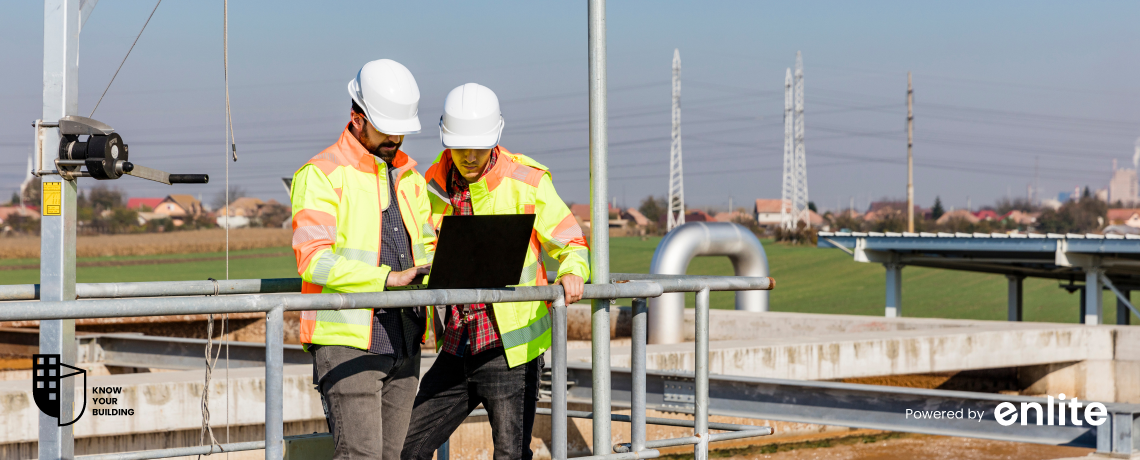Introduction
Water is an indispensable resource, and its efficient management within buildings and facilities has become increasingly crucial. With growing concerns about water scarcity, environmental impact, and operational costs, finding effective solutions for water management is imperative. Building Management Systems (BMS), also known as Building Automation Systems (BAS), have emerged as invaluable tools in addressing these challenges. In this article, we will delve into the significance of BMS in water management, beginning with an understanding of what BMS entails.
Understanding Building Management Systems (BMS)
Building Management Systems (BMS) are sophisticated, computer-based control systems that regulate and monitor a wide range of functions within buildings. These functions encompass heating, ventilation, air conditioning (HVAC), lighting, security, and, notably, water management. BMS serves as the brain of a building, orchestrating various systems to ensure they work in harmony, optimize efficiency, and maintain a comfortable and sustainable environment.
Water Management Challenges in Buildings
Before exploring how BMS addresses water management challenges, it’s crucial to comprehend the issues that buildings commonly face:
Excessive Water Usage: Buildings often consume more water than necessary due to inefficient water systems, lack of monitoring, and user behavior.
Undetected Leaks: Water leaks can go unnoticed for extended periods, leading to significant water wastage and potential structural damage. Early detection is key to mitigation.
Sustainability Goals: Many organizations and building owners have set sustainability targets, necessitating efficient water usage and reduced environmental impact.
The Integration of BMS in Water Management
BMS is a game-changer in water management within buildings, offering comprehensive solutions to these challenges:
Monitoring and Control
BMS incorporates sensors and meters throughout a building’s water infrastructure, providing real-time monitoring of water consumption. This capability allows building operators to:
Monitor Usage Patterns: BMS tracks water usage patterns, helping identify irregular spikes or unusual consumption that may indicate issues or inefficiencies.
Identify High-Usage Areas: The system pinpoints areas of the building with high water consumption, enabling targeted interventions or behaviour adjustments.
Adapt to Occupancy: BMS can adjust water-related systems based on occupancy or usage fluctuations. For example, it can reduce water flow during periods of low occupancy.
Leak Detection and Prevention
One of the most critical functions of BMS in water management is leak detection and prevention:
Early Detection: Integrated sensors in BMS can detect abnormal water flow, signalling potential leaks. Swift alerts or automatic shut-off mechanisms can be activated, preventing further damage and conserving water.
Optimization of Water Usage
BMS goes beyond monitoring and detection by optimizing water usage within buildings:
Irrigation Scheduling: BMS can schedule irrigation during non-peak hours, reducing water consumption and minimizing interference with occupants.
Temperature Control: For HVAC systems, BMS can adjust water temperatures for optimal efficiency, minimizing waste while maintaining comfort.
Alternative Water Sources: BMS can oversee the implementation of rainwater harvesting and greywater recycling systems, reducing reliance on traditional water sources and promoting sustainability.
Building Management Systems (BMS) play a pivotal role in addressing water management challenges within buildings. Through real-time monitoring, leak detection and prevention, and optimization of water usage, BMS systems contribute to cost savings, sustainability, and enhanced efficiency. As water conservation and sustainability become increasingly vital, the integration of BMS in water management is expected to continue growing, benefiting building owners, facility managers, and the environment.
Benefits of Implementing BMS in Water Management
The implementation of Building Management Systems (BMS) in water management offers a multitude of benefits that extend beyond the immediate advantages of cost savings. Here, we explore the three primary benefits
Cost Savings
Efficient water management through BMS translates into tangible cost savings. These savings occur through several mechanisms:
Improved Sustainability
Sustainability is at the forefront of global concerns, and responsible water management is a vital component. BMS significantly contributes to sustainability goals in several ways:
- Water Conservation: The primary goal of BMS in water management is to minimize wastage and maximize efficient usage. This directly aligns with sustainability objectives by reducing the environmental impact of excessive water consumption.
- Resource Preservation: By optimizing water usage and preventing leaks, BMS helps conserve water resources, which is especially critical in regions facing water scarcity.
- Environmental Responsibility: Building owners and organizations that prioritize sustainability can demonstrate their commitment through BMS-driven water management. Reduced water usage and environmental responsibility can enhance their brand image.
Enhanced Operational Efficiency
The operational efficiency of a building or facility is crucial for its functionality and overall performance. BMS contributes to operational efficiency through:
- Real-time Data and Analytics: BMS provides building operators with valuable real-time data and analytics. This information empowers them to make informed decisions, respond promptly to issues, and optimize water systems for efficiency.
- Streamlined Management: BMS acts as a centralized control system, streamlining the management of various building functions, including water. This integration enhances overall operational efficiency, as operators can oversee multiple systems from a single interface.
- Occupant Comfort: Efficient water management through BMS ensures that water-related systems, such as heating and cooling, work optimally, contributing to occupant comfort. A comfortable environment boosts productivity and satisfaction.
Future Trends and Innovations
The future of BMS in water management is poised for exciting developments:
- IoT Integration: The Internet of Things (IoT) will play a more prominent role, enabling BMS to gather even more data and make real-time adjustments for water optimization.
- Artificial Intelligence (AI): AI-driven analytics will enhance predictive maintenance capabilities, allowing for more efficient water system management.














